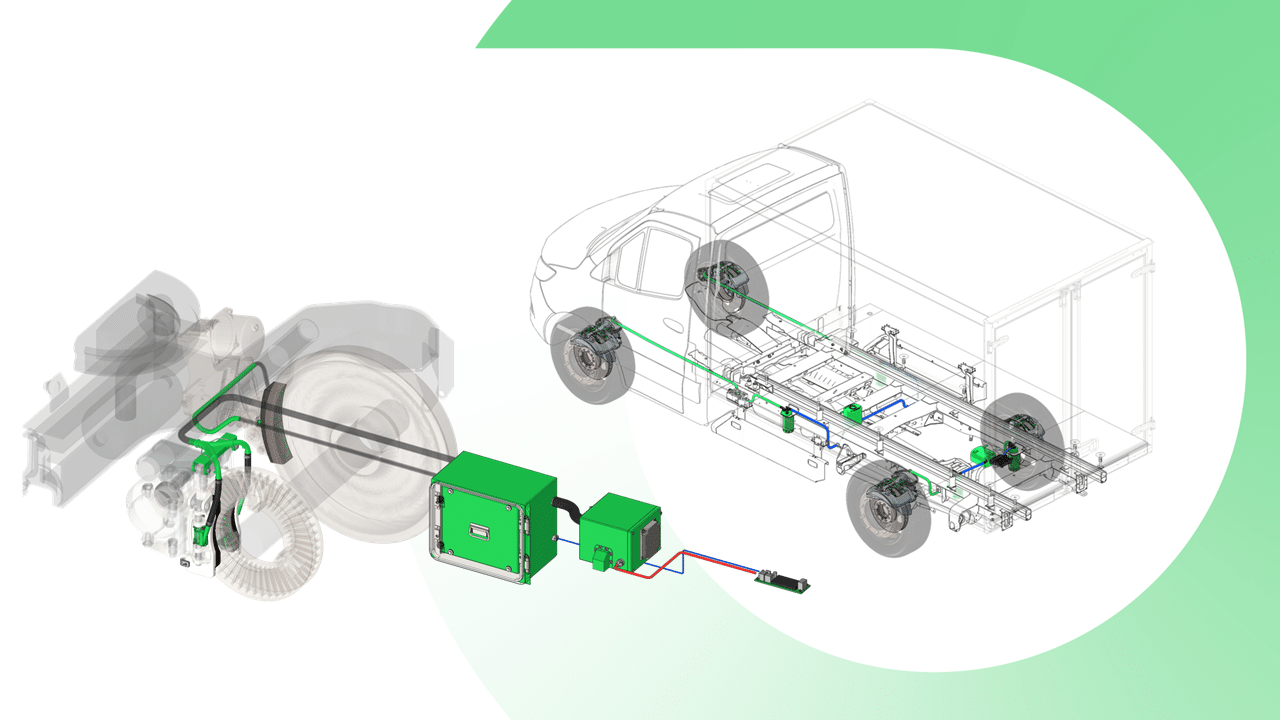How can you protect yourself from fine particles?
Leave your car behind
When you drive, you are particularly exposed to fine particles. They become lodged in the passenger compartment and the air you breathe is loaded with fine particles. Walking, cycling or public transport: using more environmentally friendly methods to move around means protecting yourself from fine particles. This does not apply to railway enclosures however: an expert report by the French Agency for Food, Environmental and Occupational Health & Safety (ANSES) has found that railway enclosures in France contain concentrations of particles suspended in the air (PM10, PM2.5 in µg.m-3) that are on average three times higher than in outdoor urban environments.
Capturing brake particles
But how can you protect yourself against fine particles when you have no choice but to use your vehicle every day? It is possible to capture particle emissions at their source. When they are installed on exhaust or braking systems (such as the TAMIC® solution by Tallano Technologies), filtration devices capture fine particles from vehicles and prevent them from being dispersed into the air. These technologies need to be more widespread, especially for brake and tyre-wear dust, which is barely regulated, but just as dangerous as exhaust particles.
Avoid congested areas
Areas with high road-traffic density are heavily polluted and contain large quantities of fine particles in a small perimeter. To protect yourself from fine particles, it is better to move away from these neighbourhoods or avoid using busy roads on a daily basis – especially during rush hour.
Find out about air quality
Isn’t it time to get into some good habits? Check the air quality forecasts for your city on special websites such as Prev’air and Airparif for the Ile-de-France region. If air pollution levels are high, it is recommended that you stay indoors as much as possible and avoid playing sports. If you’re staying indoors, air purifiers can reduce the amount of fine particles you breathe.
Protect your lungs and your breathing
People suffering from respiratory or pulmonary diseases (asthma, chronic bronchitis, etc.) are less resistant to the harmful effects of fine particles. Good habits like stopping smoking, exercising regularly, eating a balanced diet packed with antioxidants (blackberries, artichokes, prunes, raspberries, strawberries, and so on) will help keep you healthy and protected against fine particles.
Make a difference for the future
Having said all that, we lose an average of 2.2 years’ life expectancy due to air pollution – and this rises to 10 years for people living in New Delhi. The number of deaths caused by fine particle pollution is similar to the number of deaths caused by smoking, more than three times those caused by drinking alcohol and consuming unsafe water, and six times those caused by HIV. Fine particle air pollution is an invisible threat that requires more action from both individuals and governments.


